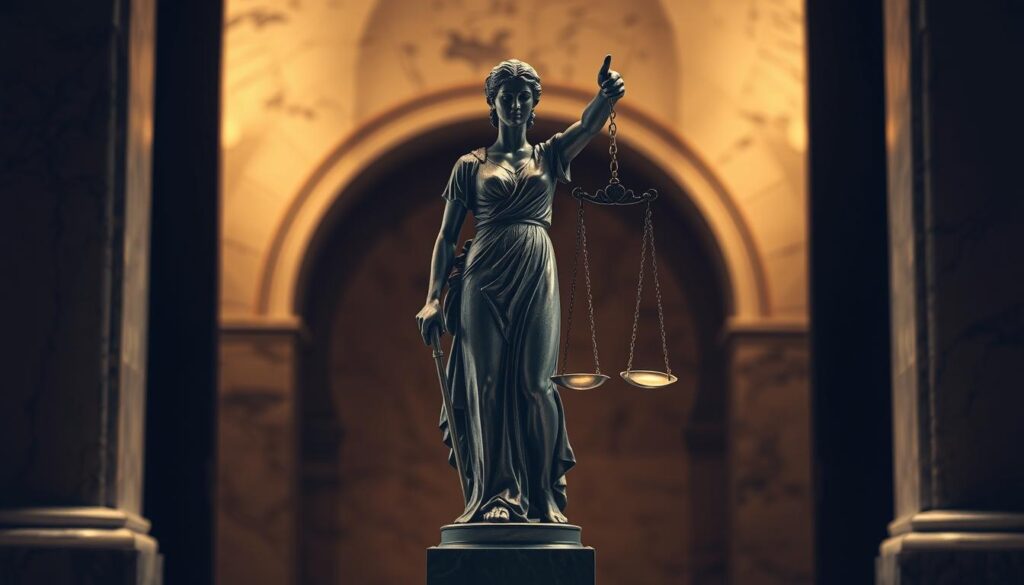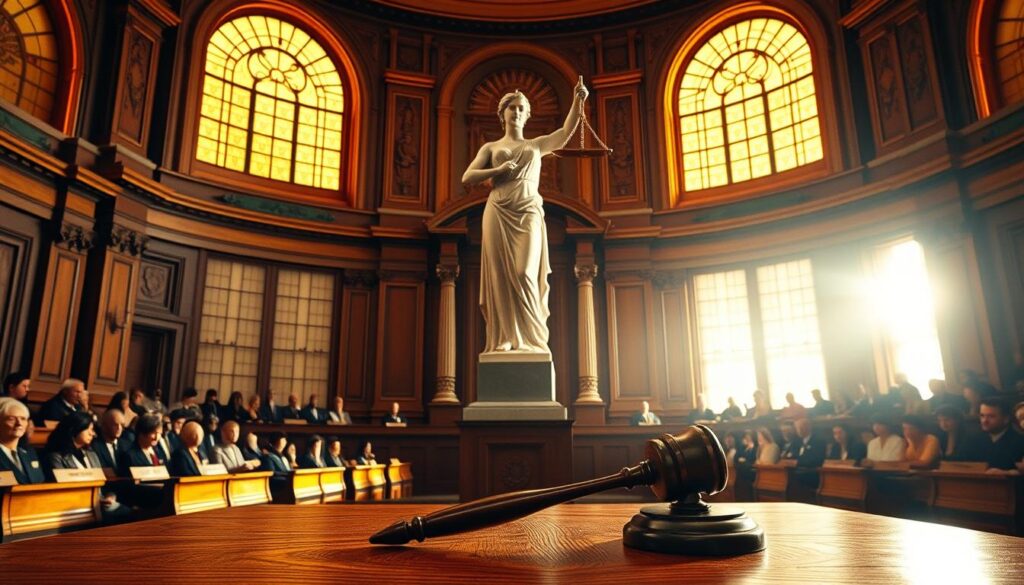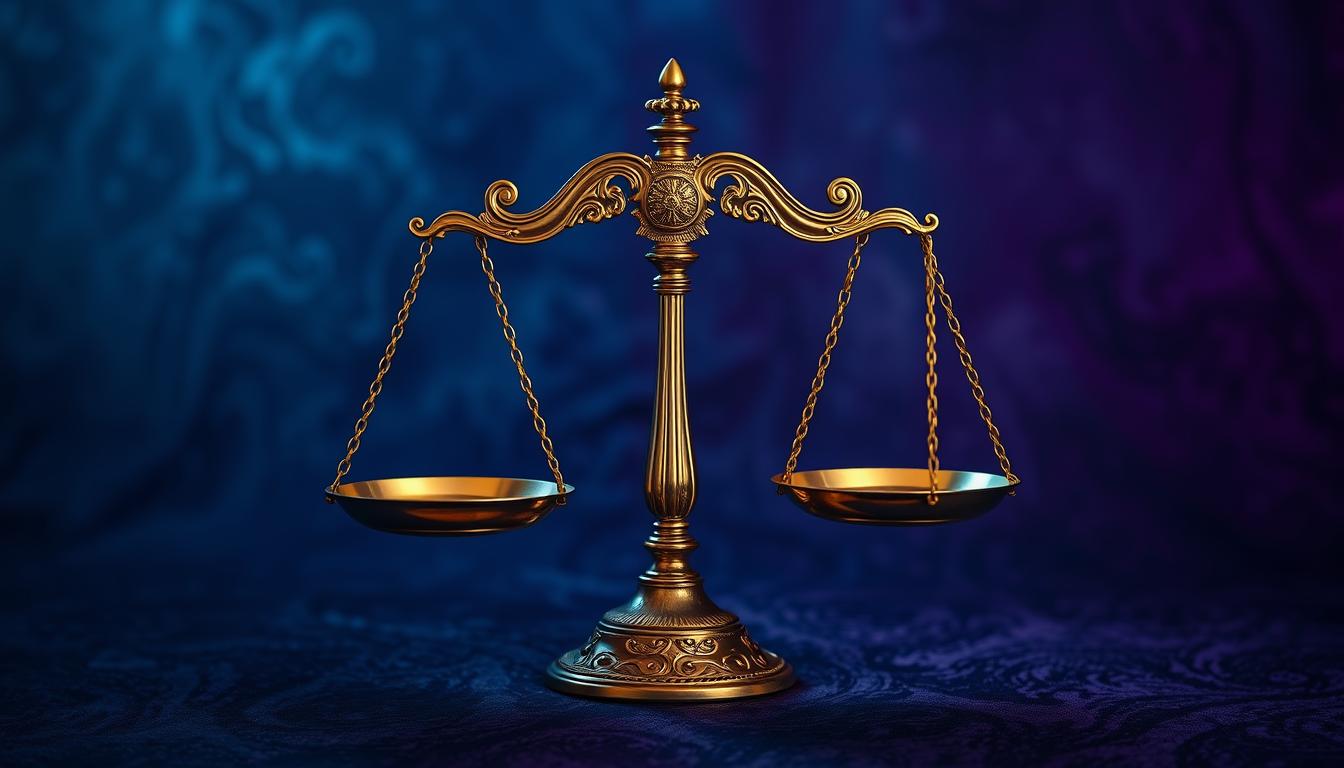The Justice tarot card stands as a timeless symbol of fairness, balance, and accountability. Its imagery—scales and a sword—reminds us of the importance of clear judgment and ethical decision-making. In today’s world, where societal shifts toward equity and personal responsibility are gaining momentum, this card’s message feels more relevant than ever.
From organizations like Her Justice, which supports vulnerable women in New York City, to the U.S. Department of Justice’s mission to protect civil rights, the themes of this card echo in real-world efforts. It’s not just about cosmic alignment; it’s about taking actionable steps toward fairness in our lives and communities.
Whether you’re navigating personal growth or seeking to make a broader impact, the Justice card encourages you to weigh your choices carefully. Its energy can guide you toward integrity and help you align your actions with your values. Now is the time to embrace its lessons and let its scales tip in your favor.
Key Takeaways
- The Justice tarot card symbolizes fairness, balance, and accountability.
- Its themes align with modern societal shifts toward equity and personal responsibility.
- Real-world examples, like Her Justice, highlight its relevance today.
- This card encourages ethical decision-making and personal growth.
- Its energy can guide you to align your actions with your values.
The Justice Tarot Card: A Symbol of Fairness and Balance
At its core, the Justice tarot card is a powerful emblem of truth and balance. Its imagery—a sword, scales, and a blindfold—serves as a reminder of the tools we need for ethical decision-making. The sword represents clarity and decisive action, while the scales symbolize weighing choices carefully. The blindfold reminds us to approach situations with impartiality.

These elements mirror the values of organizations like the U.S. Department of Justice, which upholds independence, honesty, and excellence. Similarly, Her Justice’s policy work addresses systemic barriers in family courts, advocating for fairness in real-world scenarios. The card’s message isn’t just about ideals; it’s about actionable steps toward equity.
What the Justice Card Represents in Tarot
The Justice card encourages us to take responsibility for our actions. It emphasizes the importance of integrity, whether in personal relationships or professional settings. For example, workplace fairness aligns with Her Justice’s mission to advocate for economic security. This card reminds us that every decision has consequences, urging us to act with honesty and accountability.
How the Scales of Justice Reflect Life’s Equilibrium
Life often requires us to find balance, much like the scales in the Justice card. Challenges, such as court delays highlighted in Her Justice’s COVID-19 report, remind us that achieving fairness isn’t always easy. Yet, the card inspires us to persevere. “Balance isn’t given; it’s created through deliberate actions,” as Justice Belisle Eaton once noted during a Her Justice fundraiser.
Whether in personal growth or professional endeavors, the Justice card’s energy guides us toward harmony. It’s a call to align our actions with our values, ensuring that fairness and integrity remain at the forefront of our decisions.
How Justice Manifests in Your Daily Life
Fairness and balance aren’t just ideals; they’re practices we can weave into our daily lives. Whether in personal relationships, professional settings, or ethical decision-making, the principles of fairness guide us toward harmony and integrity. Let’s explore how these values play out in real-world scenarios.

Recognizing Fairness in Personal Relationships
In personal relationships, fairness means treating others with respect and empathy. Her Justice’s client eligibility criteria, for example, provide a framework for ensuring equity. This approach aligns with the principle that “equals should be treated equally and unequals unequally.”
Take Marjer’s story, a Her Justice client who overcame abuse through legal support. Her journey highlights the importance of fair treatment and access to resources. By applying these insights, we can foster healthier, more balanced relationships.
Justice at Work: Navigating Professional Challenges
In the workplace, fairness ensures that everyone has equal opportunities. Her Justice’s corporate partnerships, like their collaboration with PJT Partners, demonstrate how organizations can advocate for equity. These efforts align with the concept of distributive justice—fairly distributing benefits and burdens.
For instance, addressing workplace discrimination or advocating for equal pay are tangible ways to uphold fairness. As Rachel Braunstein of Her Justice notes,
“Reforms in systems like child support are essential for creating a just society.”
The Role of Integrity in Upholding Justice
Integrity is the foundation of fairness. The U.S. Department of Justice’s ethical standards and Her Justice attorneys’ casework exemplify this principle. Integrity ensures that decisions are made with honesty and accountability.
Financial justice, such as Her Justice’s 200% poverty level eligibility threshold, also relies on integrity. By advocating for fair compensation and systemic reforms, we can create a more equitable world.
| Area | Example | Outcome |
|---|---|---|
| Personal Relationships | Marjer’s story | Overcoming abuse through legal support |
| Workplace | Her Justice & PJT Partners | Advocating for workplace equity |
| Integrity | DOJ ethical standards | Ensuring honest decision-making |
By embracing these principles, we can make fairness a cornerstone of our daily lives. For more insights, explore this resource on creating balanced decisions.
Justice in the Legal and Social Sphere
The legal and social systems are deeply intertwined, shaping how fairness is achieved in society. From courtrooms to community initiatives, the principles of equity and accountability guide efforts to create a more just world. Let’s explore how these systems work together to address systemic challenges.

Lessons from the U.S. Department of Justice
The U.S. Department of Justice (DOJ) exemplifies the values of excellence and integrity. Its collaboration with organizations like Her Justice demonstrates the power of partnerships. For every $1 donated to Her Justice, the DOJ reports an $8 return on investment, showcasing the tangible impact of these efforts.
Her Justice’s annual impact reports highlight the DOJ’s commitment to fairness. These reports analyze systemic barriers, such as court delays in NYC family courts, and propose actionable reforms. By addressing these issues, the DOJ and Her Justice work to ensure equitable outcomes for vulnerable populations.
Restorative Justice: Healing Beyond the Courtroom
Restorative justice focuses on healing rather than punishment. Her Justice’s policy agenda for migrant support is a prime example. This approach emphasizes community-based solutions, offering resources and advocacy to those in need.
For instance, Her Justice’s work in child support cases reflects the karmic balance often associated with tarot. By ensuring fair legal outcomes, they help families achieve stability and security. As highlighted in the 2025 Variety documentary, restorative models are transforming lives beyond the courtroom.
- Intersectionality: Her Justice’s focus on foreign-born women underscores the interconnectedness of minority experiences.
- Court Reform: Testimonies about NYC family court delays highlight the urgent need for systemic change.
- Community Healing: Restorative justice models provide pathways for healing and reconciliation.
By addressing these challenges, the legal and social spheres can work together to create a more equitable future. Whether through policy reforms or community initiatives, the principles of fairness remain at the heart of these efforts.
Practical Ways to Embrace Justice Right Now
Practical steps can make fairness a tangible reality in our communities. Whether through personal decisions or collective efforts, embracing fairness starts with actionable initiatives. Let’s explore how you can contribute to a more equitable world.

Making Balanced Decisions with Confidence
Every decision we make impacts our lives and those around us. Her Justice’s client intake criteria offer a framework for assessing choices with fairness in mind. By weighing options carefully, we can ensure our actions align with our values.
Pro bono work is another way to mirror Her Justice’s volunteer attorney model. Offering your skills to those in need not only helps others but also strengthens your community. As one volunteer attorney shared,
“Giving back through legal support has been one of the most rewarding experiences of my career.”
Advocating for Fairness in Your Community
Community advocacy starts with education. Her Justice’s legal resource library provides tools to stay informed and take action. Sharing knowledge empowers people to address systemic barriers and push for change.
Policy engagement is another powerful tool. Her Justice’s legislative advocacy toolkit offers guidance on contacting elected officials and supporting reforms. For example, their work on child support cases highlights the importance of systemic change.
- Donate: Every $1 donated to Her Justice multiplies into $8 worth of services, creating a ripple effect of fairness.
- Volunteer: Join programs like Her Justice’s volunteer attorney initiatives to make a direct impact.
- Educate: Use resources like Her Justice’s legal library to stay informed and advocate for change.
By taking these steps, you can help tip the scales toward a more just and equitable society.
Conclusion
The scales of fairness tip when we take deliberate action, as seen in Her Justice’s impactful work. Stories like Marjer’s, who overcame abuse with legal support, remind us of the power of fairness in transforming lives. Leaders like Alice Belisle Eaton inspire us to advocate for systemic change, proving that every effort counts.
Her Justice’s policy victories, such as reforms in child support cases, show how personal growth can lead to broader societal impact. By aligning our actions with our values, we can create a ripple effect of equity and integrity.
As Executive Director Alexia Korberg envisions, a fairer world starts with each of us. Take action today—whether through volunteering, donating, or advocating for change. Together, we can tip the scales toward a more just and equitable future.

